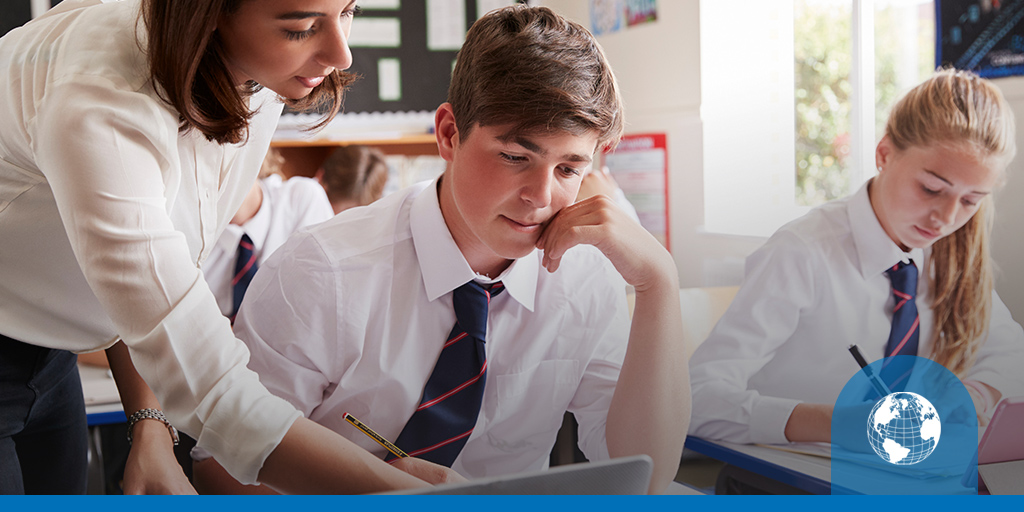Covid19 has undoubtedly turned everybody’s lives upside down - and on a global scale. It is hard to imagine that one day this will become an important part of social history, with museum exhibits dedicated to telling the story of how Covid19 changed everything.
Described as a disruptor, like most unexpected and surprising happenings, it takes time to accept the new status quo and get to place where reflection can begin.
Even though Covid19 is not yet out of our lives, we are just beginning to learn how it has changed us – the good and the bad.
Disruption in education
It is well documented just how disruptive Covid19 has been to education. Schools had little notice to move teaching online, pupils had to find their own discipline to follow new protocols and interact with their class and teachers remotely and parents had to turn homes into classrooms and get deeply involved in lesson timetabling.

There is no doubt this was stressful for all involved, especially during the early days when the ‘new normal’ was being tested. Yet new-look schools have emerged from these dark days and it is really interesting to learn about the changes.

In a recent Teaching and Learning report by ISC Research*, there were significant developments happening in British International Schools around the world. A school in the United Arab Emirates suggested Covid19 has been a big influence:
“Due to the continuing COVID protocols, there may be a consideration of appointing dedicated leaders for full-time distance learning as one of the models for parents to choose in the future.”
Which suggests that Covid19 has actually created opportunity for both schools and parents to offer an education which either wholly or partly takes place remotely. They are not alone in thinking differently and positively. Indeed this international school in Switzerland also had post-Covid changes to report:
An international school in Switzerland said there had been notable benefits from the experience of online learning due to campus closures:
“COVID has made us revisit some of the teaching strategies and instructional moves. We are seeing the benefit of some of the tools introduced but also how these make us revisit our approaches. There are some pockets of flipped classroom, but as we engage in strategy development for our school, approaches like this might become more a whole school intentional approach more than by chance or teacher choice.”
New-look Schools Post-Covid

Key changes that schools have identified include:
- Staff upskilling
New roles seem to be emerging in schools, a greater focus on professional development and technical ability becoming a ‘must’ rather than a ‘would-like’. - Blended and hybrid learning
With Covid19 still disrupting teaching time, schools have been hanging onto the ability to switch between class and home learning. For international schools as alluded to earlier, this model can even provide competitive advantage. - Formalising a digital strategy
Tech enabled schools, such as the British School of Paris were very quick to respond to the changes brought about the pandemic. Others were less equipped to make the switch quickly. The need to formalise a digital strategy became apparent as well as ensuring a whole-school implementation. - New generation of learners
Learners too have discovered a new way to engage in school-life. Greater tech-enabled experiences are something that new generations will come to expect from their school and teachers. Parents have also become more immersed in their child’s learning journey and will therefore need greater visibility and convenient ways to stay involved.
The Covid19 Fallout
With direction of travel pointed forwards, it is pertinent to recognise the less glossy aspects of the disruption caused by Covid19.
Poor mental health has been reported at an all-time high post-Covid**. 67% believed that the pandemic will have a long-term negative effect on their mental health. This includes young people who had been bereaved or undergone traumatic experiences during the pandemic, who were concerned about whether friendships would recover, or who were worried about the loss of education or their prospects of finding work. (19% neither agreed nor disagreed, 14% disagreed).
This survey provides a stark picture of the affects on some young people. Schools have generally responded well to this, adding new roles focused on Wellbeing and training teachers to recognise signs of poor mental health. This has led to increased awareness, more public conversations about mental health and resources being made available to teachers and pupils.
Summary
- The disruption has inspired greater technical and crisis planning by schools.
- Staff will see many more opportunities for professional development.
- Schools are more adept with technology and able to transition learning styles.
- Greater focus on wellbeing and mental health.



